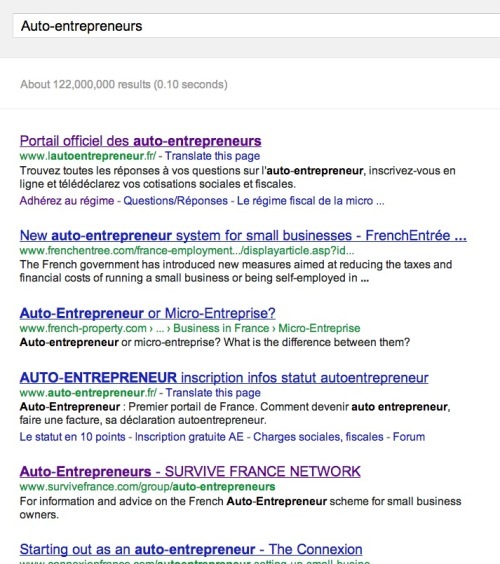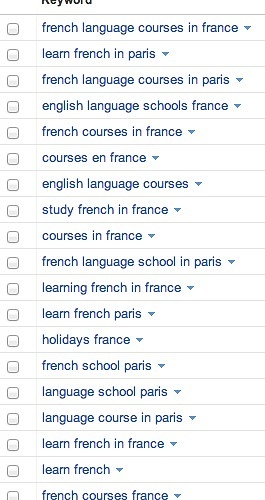Hello Ditte
First of all be wary of flash - I havent consulted the SEO forums for a while but last time I checked flash was dubious for Google. Also be aware that flash is a dying technology - it has largely been surpasssed by HTML5/CSS3 the future of the web is not flash - most people in the know will tell you this. I was heavily involved in some new technology that was dependent on Flash for some platforms and it gave me a headache and many sleeplness nights worrying about how fast these platforms would fully support CSS3 ( 3D transforms for techies ) so I could drop the flash.
For general SEO my advice is to go to Amazon and buy three books and make sure they are recent, the rules are changing all the time and many people will give you out of date SEO advice failing to keep up with the latest Google updates. The only real long term policy with Google that works is to get a Google account and find out about web master tools and then read the related Google forums where Google will tell you what we be punished ( and I mean punished ) and what will be rewarded. The basic tenants that Google supports long terms are HONESTY ( dont over design the SEO at the end of the day your website should be appealing to the target audience, trying to get hits beyond the natural "Pull" of your website will generally end in tears ) - build it for people not webots, and be selective and discening who you trade links with - do not use Link agencies unless you know they really get good quality links - your average link builder will do you more damage than good - STEADY - if you try and be popular too quickly you may trip some of Googles traps and suffer the consequence- some websites do grow fast but for most steady year on year growth is likely to be trusted more by Google.
4. This is a complex question and anyone who tells you that they know the answer is probably stepping on a thin plank, I have followed forum postings by official Google spokespeople and they generally say many factors come into play here. Google does supply an option to say "only show results for a webpage FROM this country" but as to how many people use it and whether Google determines country from IP number of the host server or from the URL domain I cannot say - using domain name is not a sure fire way - many UK websites prefer .com which is supposedly mainly for the US. I would say if your target audience is in the UK only then .co.uk may be preferable but I am sure there is a counter argument - lets put it this way - many .co.uk websites are performing fine for the UK market so it seems to work for many people.
2. Use competitor keywords to build your own knowledge and then make your own mind up - use competitor keywords to throw into the big pot with your own ideas and then do your analysis - use Google trends ( formerly Google insights ).
I have been doing analysis on my own commercial websites (including my own campsite) and my thoughts are....
1. No-one can be paid to care like you do - example, our campsite benefits from symbiotic traffic from a nearby adventure park - think your average "SEO teenager - we can boost you in Google yah yah yah" would know or care about that level of business analysis - no-one can know or understand your business like you can.
2. Nothing is constant, its all a state of flux - good people learn to think like Sherlock Holmes and ask "why" a lot when observing the behavour of visitors to their website.
3. See point 2 - you need a good tracking package down to the level of being to identify and track the footfall of one user. Pick two or three visitors a day and follow their progress on your website, ask why a lot and also see if they buy or book anything - depends on your business and why you are online in the first place - just decide what the goal is - for some it might be that they spend more than five minutes on your website. Unfortunately I cannot recommend a good tracking package because I wrote my own, its customised, very powerful and constantly improved to answer the new questions that come into my head.
You could try Google analytics which is free to start off with - just get a general Google account and then add the tools you need from the selection presented.
You can go as deep as you like here but make no mistake -
Its not about computers
Its not geeky
Its business pure and simple.
I have done consultancy for people in the past and I am bored with it because everyone I deal with wants...
1. Me to do all the work
2. Not to really get their hands dirty.
SEO and general website analysis is like asking customers who come into your shop why they came, what they are looking for, did they find what they wanted, are they satisfied and will they come again.
Keywords seen from this angle is no more than making sure you have a good sign above the shop.
Rewards?
A business I did do consulting for and who did listen and do the hard work themselves reported a 10% increase in revenue attributed to those changes against an industry wide down turn of 15%.
My own business has gone up a minium of 10% revenue every year for the last two years - the year before that was the year I took it over when we basically stayed static. In the same time period my analysis lead me to "sack" an expensive third party - I divered the funds to Google adwords and benefited many many fold over what the expensive and under achieving third party were acheiveing - however my Google adwords campaign was focused, highly analytical and constantly reviewed against performance - you can easily waste your money with Google - just run an advert with generic keywords for a campsite in France and see how many hits you pay for from people on the otherside of the world. Put it this way - we get good trade from one or two cities in country X in the school holidays - we find out the dates because they vary and we target one city for two weeks and another for three weeks and then we cut the campaign and move to another. I say country X because I would not want my competitors to know about this one.
I hope anyone who managed to get this far is now convinced that you cannot get good SEO or general analysis of your online presence from a third party unless your business can be understood fully by that third party.
Kind regards
Jon

